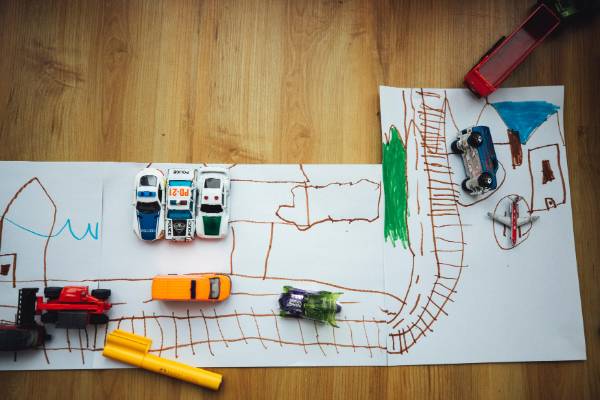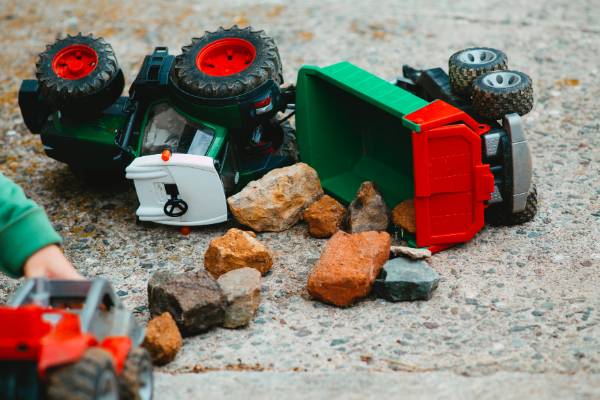Infantile amnesia is a type of amnesia that appears to be an unintended consequence of the brain’s typical developmental processes. As a result, almost no one can recall any biographical details from before the age of four.
Infantile Amnesia
Infantile amnesia definition is the phenomenon of not being able to recall memories from the infant years. Infantile amnesia is also called infant amnesia. Most people’s memories start between the ages of two and a half and four.
The majority of people don’t remember their very early years, though there are some exceptions to this rule. True memories, those that are actually created and not adopted from hearing stories, begin around the time a child is a toddler.
Many people think they can recall things that happened to them when they were younger than two and a half, but this is most likely a result of a family member recalling the event and then repeatedly recounting the events that led up to it.
The subject of the story eventually feels as though they can remember seeing the event too, but this is probably not the case before they reach toddlerhood due to infantile amnesia.
Every year, someone may hear a story about how, as a one-year-old, they waved at every person they saw in the grocery store, but they cannot recall ever having done so.
According to studies, incidents like abuse, trauma, and neglect—even when they take place during the time periods covered by infantile amnesia—can predispose adults to a variety of psychopathologies. Examples include:
- Post-traumatic stress disorder (PTSD)
- Borderline personality disorder
- Depression
- Anxiety
Data on neglected children reveals that almost all of them struggle with learning and other cognitive abilities. With the right care, some of these skills can be strengthened, while others are permanently damaged by issues from early life.

How then can events that we no longer consciously recall or articulate have such significant effects on our future development? What is going on in our brains when infantile amnesia is most common?
These are just a few of the issues that researchers are currently attempting to address.
How Does Brain Handle Memories
It’s critical to comprehend how your brain processes new memories in order to comprehend the possible causes of infantile amnesia. To create and access a new memory, there are four basic steps. These involve:
- Encoding information. The process of representing new information in your brain begins with a series of connections. These may be connected to other data that is already registered in your memory. To properly store this information, you frequently need to be paying attention.
- Consolidation. By doing this, you can be sure that the encoded data is retained in your brain for either a short or long time.
- Storage. The consolidated memories are then stored in your brain for later use.
- Retrieval. In order to consciously remember the encoded information, your brain either recreates or activates the original connections.
Remember that these explanations are incredibly simplified. Although we don’t fully understand each of these steps, we do know that infants and young children’s brains are most likely still developing in these areas.
How and why infantile amnesia happens and this lack of development may be connected.
Causes
Infantile amnesia’s precise origins are unknown at this time. One popular theory is that it’s a result of how our brains develop in particular.
This process most likely involves the hippocampus, a region of your brain. When a child has infantile amnesia, it helps fill in the blanks for their autobiographical memories.
According to studies, the hippocampus doesn’t fully develop until a baby is between 20 and 24 months old. However, by the time a child is five years old, it is almost fully formed.
The ages that infantile amnesia affects the most happen to fall right on this developmental timeline.
Another concern is whether or not this amnesia affects the ability to learn, form memories, or properly store and retrieve them.
Even very young infants can learn and develop autobiographical memories before they can speak, according to the majority of experts.
For instance, in a Yale study, infants were shown two sets of images. Only one set of cards had a clear narrative, while the others were entirely arbitrary.
When compared to the second set, the babies responded to the first set much more. Infants can imitate action sequences that they’ve just seen, according to other studies.
Additionally, even when they are still learning to talk, very young children can recall autobiographical events that happened up to six months ago.
All of this suggests that children are able to retain some autobiographical memories, even though they must lose them much more quickly.
The next query is whether these memories are lost due to poor retrieval or improper storage. To find an answer to this question, more study is required.
One theory holds that the hippocampus’s development of memory skills leads to infantile amnesia.
Encoding, storage, and retrieval are all essential components of memory creation, but it can’t perform these tasks as effectively as it can when you’re an adult.
Other Kinds Of Amnesia
Only infantile amnesia is a type of amnesia that is a typical stage of human development. The causes of all other types are systemic disease, trauma, or injury.
Amnesia can be divided into two main groups. When you are unable to remember details from the past, retrograde amnesia is identified.
Retrograde amnesia is the only type of infantile amnesia that exists. The inability to create new memories is known as anterograde amnesia.



